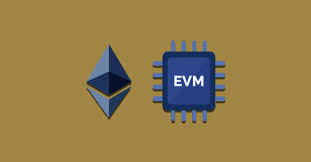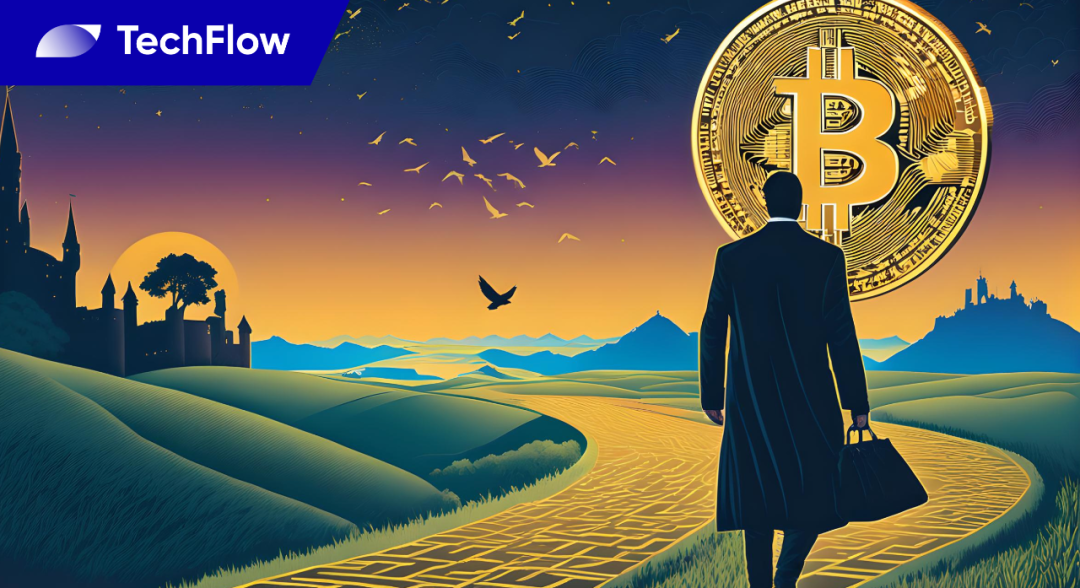Viewpoint | Blockchain is the only way to realize the digital economy in cyberspace
Editor's Note: This article has been modified without altering the author's original intention.
On October 24 last year, the Political Bureau of the Central Committee of the Communist Party of China conducted the eighteenth collective study on the current status and trends of blockchain technology development. The state's highest decision-maker issued the strongest voice to learn about blockchain technology throughout the country: "Take blockchain as an important breakthrough in independent innovation of core technologies, and accelerate the development of blockchain technology and industrial innovation." This means that China will lead the world and human beings to start a new exploration and journey in a new generation of cyberspace based on blockchain technology, and it is very likely that it will quickly occupy and stay at the top of the cyberspace virtual world for a long time. . But what is the digital economy? There are different opinions on how the digital economy exists in what kind of cyberspace and how it is related to blockchain technology. There is no unified answer and clear explanation.
In my opinion, if we can summarize the relationship between the blockchain and the digital economy in one sentence, then the blockchain must be the only way to realize the digital economy in the value network space. Only the blockchain can bring the real digital economy. "
When we talk about the "digital economy", we have to say what is the digital economy first? So far, there is no uniform definition of the “digital economy”. Searching Baidu, an explanation will appear: "The digital economy as an economic concept is the identification, selection, filtering, storage, and use of humans through big data (digital knowledge and information) to guide and realize the rapid optimization of resource allocation and regeneration. To achieve an economic form of high-quality economic development. "This definition cannot be said to be wrong, but in my personal understanding, the use of data information such as" big data "as the basis of the digital economy has actually limited our understanding of the digital economy. Connotation and infinite possibilities for the future. The world of the "digital economy" is far more three-dimensional, richer, and more vivid than we now imagine.
- Weekly | FCoin incident continues to ferment, 12 listed companies disclose blockchain business
- Viewpoint | What is the first principle of decentralization of blockchain?
- Interpretation of the Central Bank's "Technical Specifications for Financial Distributed Ledgers"
"The constituent elements of the digital economy are not just information that is digitally expressed, but the value expression of all the real world. The digital economy is built on the Internet of Value."
I believe everyone can understand that the premise of the digital economy is the establishment of virtual cyberspace. But the network world we are in now is just the "information internet", and the information internet only accomplishes one thing: information digitization. If the understanding of the Internet only stays within the scope of the information Internet, then understanding the composition of the "digital economy" will only stay on the "information" that is digitally expressed.
However, the revolution brought by blockchain lies in its ability to make sure and complete digital expression of the "value" in our real world, including assets such as goods, services, content, and currency through technical capabilities And reflected in the virtual network world. Based on this ability of blockchain technology, the Internet of Information is upgraded to the Internet of Value. In my opinion, only by clarifying the significance of the existence of the value network, can we more accurately interpret what the real digital economy is.
What needs to be clear here is that the digital economy is built on the "Internet of Value", not the original information Internet.
How the blockchain technology digitizes the value of the real world is explained in detail later.
"The basis of economic activity in the real world is exchange, and the basis of a true digital economy is a complete reflection of the real world exchange model."
Generally speaking, when discussing various "economy" (whether it is a market economy or the Internet economy), it will ultimately be related to its economic activities. And what is economic activity? It is commonly understood that economic activities are to meet the needs of people. The process of exchanging goods and services with "production means" such as labor is what we often call "exchange." Therefore, the basis of all economic activity is "exchange." Goods and services are the objects of exchange. Currency is the medium of exchange. It is also equipped with a certain exchange method and exchange space, which constitutes the state of economic activity.
The digital economy I understand is not only a narrow process of collecting, processing, and reusing informationized data, but a new cyberspace that can fully reflect the real-world economic activities, that is, the real-world exchange. Appearance. This is the foundation of the digital economy.
As of now, only blockchain technology allows the virtual network world to fully reflect the real world currency form, commodity value form, and exchange form, so only the blockchain can bring a real digital economy.
"How does blockchain technology allow virtual cyberspace to truly reflect the real world exchange situation?"
Blockchain technology can build a solid four necessary infrastructures for the truly efficient operation of the digital economy:
The first is to create an exchange medium in cyberspace: digital currency
The second is the exchange object that expresses the real world: digital value
The third is to restore the real world exchange method: trusted exchange based on smart contracts
The fourth is to create an orderly exchange space: an orderly value network
I. Creating an exchange medium in cyberspace: digital currency
The word "digital currency" is a household word, but it is a pity that most people are confused about the difference between "digital currency", "virtual currency" and "electronic currency". Why did digital currency arise? What is the change brought by the Internet … Even many companies and individuals who claim to be "blockchain" are confused. So it is necessary to talk about what exactly is digital currency? What problem was solved?
Let's first understand what currency looks like in the real world? What is the difference between the currency in the real world and the current "virtual currency" and "electronic payment currency" in the Internet?
1. Real-world currencies (such as RMB), issued by the state. It is centralized during the issuance stage, but the RMB is typically "decentralized" in the circulation process. For example: Take a dollar from my pocket and put it in your pocket, etc. Doesn't it mean that in the digital world, I transfer you 1 yuan from the bank or I use WeChat or Alipay to transfer you a dollar? The answer is of course "not equal". Because in the first method, only me and you are involved. We are direct payments (or direct value transfer) from person to person and point to point. In the latter method, at least Participation of third parties such as banks or Alipay.
2. During the use of RMB in the real world, can I spend two pieces of money at the same time? The answer is: "No". However, in the original information Internet, when migrating from the world of centralized systems to the world of decentralization, the remaining problem is the above-mentioned "two-spend problem with one money" (referred to as the "double-spend problem") because information The data on the Internet can be changed, deleted, and changed at will, and the data cannot be consistent.
3. In the real world, RMB 1 yuan, 10 yuan, and 100 yuan banknotes are not only marked with "1, 10, 100", but also represent the corresponding value of 1 yuan, 10 yuan, and 100 yuan. You can buy the corresponding value Products of. The information and value carried by the RMB in the real world are one. However, in the original information Internet, regardless of the bank or the payment company, only the numbers are recorded in the information system, and these recorded numbers will be worthless and meaningless without the recording platform. In the information Internet, the information and value of money under a centralized system are separated.
The origin of the blockchain technology "Bitcoin" is to solve the above problems, so the Bitcoin white paper is called "a peer-to-peer electronic cash payment system":
1) In the Bitcoin network, the transfer of bitcoin only involves the transferor and the recipient;
2) Bitcoin can't copy the second one, nor can it spend one bitcoin twice;
3) The transfer of Bitcoin represents the transfer of the value of Bitcoin itself. Of course, Bitcoin has not only realized the point-to-point circulation and transfer of currencies in the real world in a virtual network, but also decentralized the issuance. This is not possible with "virtual money" or "electronic money".
The real great thing is that for the first time, Bitcoin introduced "timing" (time series) into the virtual cyberspace, so that the virtual cyberspace can be subject to ordered "time" constraints like the real world. Block chain is such a timing relationship. For example, there is no timing in the previous virtual cyberspace, so data can be added, deleted, and changed, and it cannot be discerned. With "time", even if the data is changed, it will be recorded as "data changed in the next time unit". It should be said that it is the timing relationship that gave birth to the digital currency. The addition of the "time" dimension has promoted the once disorderly virtual space into an orderly virtual space, making the occurrence of the digital economy feasible.
Of course, the issue of digital currency, I personally tend to be carried out by a strong credit endorsement agency or organization, which is not something that ordinary companies can manage. I very much look forward to the issuance of the digital currency by the People's Bank as soon as possible, leading China to the real world of the digital economy.
Exchange Objects Expressing the Real World: Digitizing Value
1. The expression form of digital value: digital voucher
Digitization of value is the most important core in the future digital business society. In the digital economy era, every enterprise and individual can digitize their various assets and other values.
There has been much controversy over "how to digitize value", and different companies have different views on how to digitize real-world values. I do n’t comment on other people ’s ideas and practices here, just introduce my company ’s practices:
We bind the ownership and rights of valuable things such as goods and services to digital carriers generated based on blockchain technology, which we call "digital vouchers." Merchants issue digital vouchers corresponding to goods or services, and anyone who gets a digital voucher can ask the merchant to pay for the goods or services. Digital vouchers carried on the value of goods and services can be arbitrarily transferred on the Internet like Bitcoin without being restricted by any centralized system or platform.
The way to achieve this process is very simple. Our approach to string technology is to directly provide a tool to digitalize the goods and services of various enterprises. In the future, once the People's Bank of China issues digital currency, the transaction between the central bank's digital currency and digital vouchers completely simulates the real transaction in the real world of "one handed money and one handed delivery".
2. The core of digital value: confirming the right
Human beings can carry out exchanges. In fact, there is a greater premise, that is, property rights must be established first. The so-called "value digitization" is to express things in the real world in digital networks, and the most essential meaning of this sentence is, in the final analysis, a digital expression in the sense of rights or tenure, and nothing more. To put it simply: effectively mapping and confirming the value of the real world value in the virtual world.
Such right confirmation requires legal support and basis. According to China's "Electronic Signature Law", "Reliable electronic signatures have the same legal effect as handwritten signatures or stamps." That is, what a subject promises in a digital network in a certain way is legally valid. . If the ownership of rights is confirmed in the digital network, then it is an effective expression of the rights of real-world things in the digital network. This is the fundamental connotation of digital value. We can't move real things into the virtual world, all we can do is control the rights of goods.
3. The introduction of "timing" in blockchain technology makes it possible to confirm the right.
As mentioned above, I explained the key role of "time" in digital currency in blockchain technology. The introduction of "time" also plays the most critical role in digitizing value. Because in the matter of "determining power," "time" is a necessary condition.
In the real world, our acquisition methods for "things" are divided into "primitive acquisition" and "received acquisition". In the "primitive acquisition" method, the most common one is: "preemption". In human society, regardless of race, country, or region, we have chosen one of the most fundamental principles: first come first served! The expression "first-come-first-served" is a concept of time. In the original disorderly information Internet, because there is no "time" lock, time can be changed at will, and the order of "who comes first" cannot be distinguished, so the "confirmation of power" cannot be implemented at all.
Among the "receive and receive" methods, the most common are buying, selling, giving, inheritance, etc. By the same token, in an Internet world where information can be changed at any time, without ensuring the stability of the ownership of rights, effective "confirmation" actions cannot be performed.
Therefore, the introduction of "timing" in blockchain technology not only allows digital currencies to be determined and not "double-spend", but also makes it possible for real-world things to be confirmed in a virtual network, allowing "digitalization of value" .
Third, restore the real world exchange method: trusted transactions based on smart contracts
Information is transmitted in the information Internet, and value is transmitted in the value Internet. However, the "information transfer" is fundamentally different from the "value transfer": the transfer of information can be unilateral, as long as the output is unilateral, the other party can receive it. Just like I'm talking to you now, whether you want to listen or not, I can pass your voice into your ears. Unless you cover your ears, it's like turning off your computer on the Internet. In most cases, the transfer of value is on both sides, and the transfer of value requires exchange. The premise of the exchange is trust. It is like, when two people exchange, should I give it to you first or you give it to me first?
In the real world, exchanges are often face-to-face. When they are in the same space and time, the question of "who gives first" can be well controlled. But in an unfamiliar network, if this problem cannot be solved, exchange will not occur.
A core technology in blockchain technology is "smart contracts". Smart contracts allow trusted transactions to be made without third parties, which are traceable and irreversible. How to understand "trusted transaction" is to technically guarantee that once the two parties have reached an agreement on the exchange conditions, as long as one party exchanges first, the other party will surely exchange.
Therefore, based on the "smart contract" technology in the blockchain, the virtual network space can also ensure that the exchange is performed efficiently and at a high speed.
Creating an Orderly Exchange Space: The Order Value Network
As explained earlier, the current information Internet, because there is no "time" dimension, data can be changed at will, and it is completely in a disorderly state. Blockchain technology introduces "time series" into cyberspace, upgrades the Internet of Information to the Internet of Order, and brings the combination of time and space closer to the three-dimensional and multidimensional aspect of the real world.
So far, this article has fully expressed my personal thinking on the digital economy:
The four cornerstones of the digital economy: digital currency, digital value, trusted exchange based on smart contracts, and order value network.
The fundamental reason for the emergence of these four cornerstones is the emergence and application of blockchain technology, which is why I will say that only blockchain technology can bring about a real digital economy. Blockchain technology is the basic condition for the formation of the digital economy.
Finally, let us imagine the virtual world in the future: in the new generation order cyberspace built by blockchain technology, digital currencies and digitalized goods and services are conducting efficient and unimpeded transactions; combined with AI and other technologies, transactions Becoming smarter and more efficient in economic activity; the economic cyclical problems that have plagued us for hundreds of years may be resolved …
The virtual world emerges from the real world, and then the two worlds map and influence each other. In the end, the virtual world develops a new form of economic activity and a new form of collaboration that transcends the real world. The arrival of the digital economy is bound to be a profound and profound change.
We will continue to update Blocking; if you have any questions or suggestions, please contact us!
Was this article helpful?
93 out of 132 found this helpful
Related articles
- Protocol Lab's latest keynote: Internet pioneers are talking about distributed networks
- Data privacy black hole under the new crown epidemic: industrial crux needs to be solved by blockchain
- Listed Company Topics | The Way of Huobi Holding
- I could have: The role of the blockchain in the epidemic is called "regret"
- Depth | Application Guide for Blockchain Wars
- Community, DAO, DeFi, this conference changed my view of the crypto world
- Perspectives | Issues exposed by the epidemic will become new business opportunities






